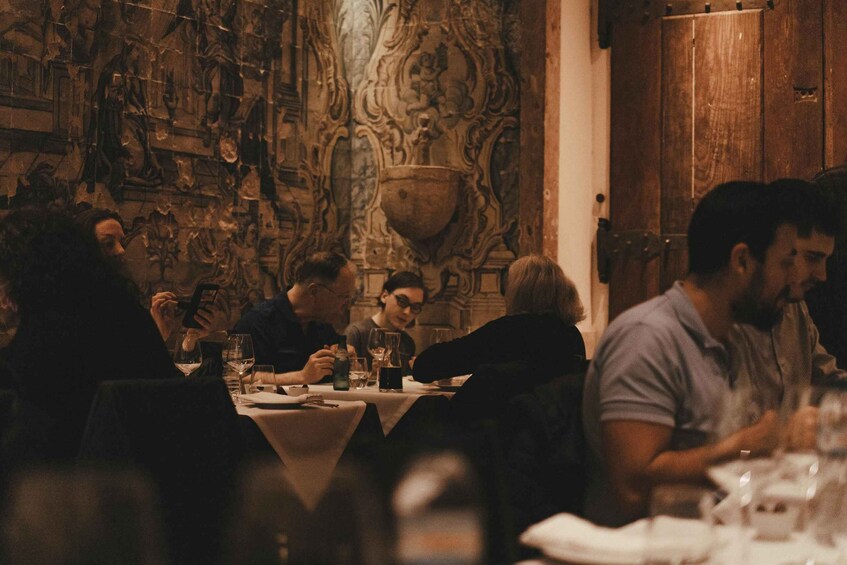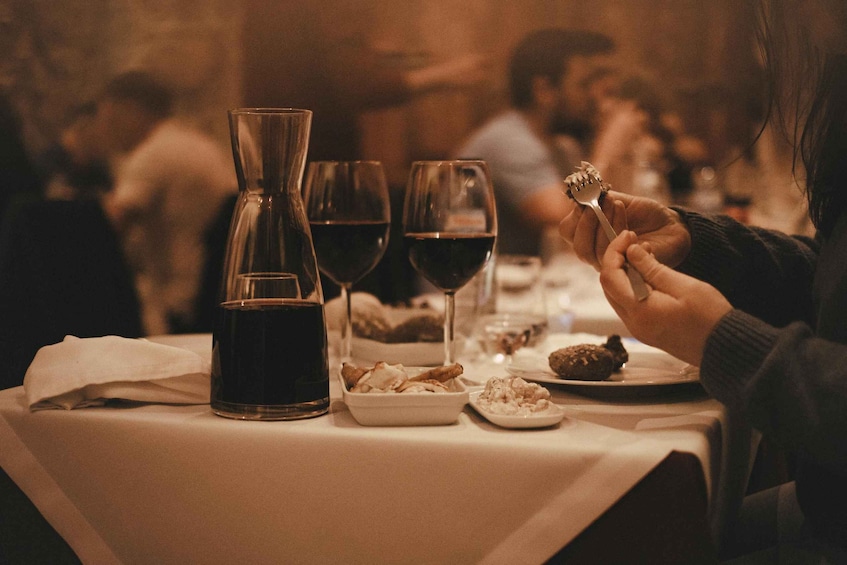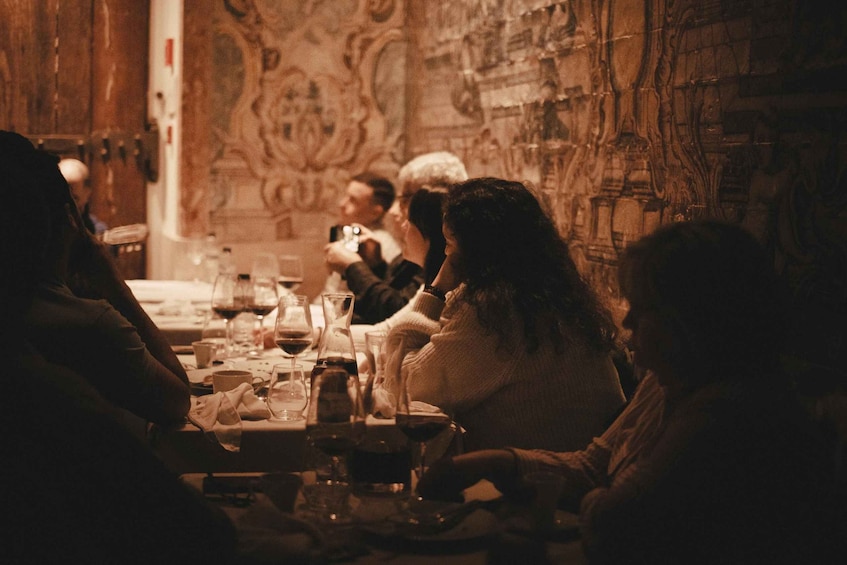Much more than just a restaurant, this iconic stop on the “Fado route” is housed in a unique chapel, one of Alfama’s most well-kept treasures. Originally part of the D. Rosa Palace, this former chapel is beautifully adorned with 18th-century tile panels bearing the Royal Coat of Arms, painted by King Joseph’s official artist. History says that King Joseph had this chapel rebuilt after the 1755 earthquake to secretly meet his Spanish mistress, D. Rosa. Today, the seductive and romantic atmosphere is enhanced by the soulful sounds of Fado, performed nightly by renowned singers and new-generation fadistas.
A Rich History
• 1755: The palace is destroyed by the earthquake on November 1st.
• 18th Century: King Joseph of Portugal orders the D. Rosa Palace to be rebuilt, adding tile panels with the Royal Coat of Arms.
• 19th Century: The chapel is desacralized and converted into a charcoal works. By the late 19th century, it transforms into a small tavern hosting famous Fado nights, a tradition that continues until 1994.
• 1934 to 1994: The venue operates as a tavern with a licence to sell wine, hosting amateur Fado nights until the mid-eighties.
• 1994 to 2005: It becomes a restaurant named Mesa de Frades, occasionally featuring Fado evenings.
• 2005: Musician Pedro de Castro renovates the venue, transforming it into a restaurant and Fado house.
• 2017: After further renovations, Mesa de Frades reopens with a 24-hour Fado marathon.
An Unforgettable Atmosphere
In this historic and intimate setting, every night at Mesa de Frades is filled with the enchanting music of Fado. The informal atmosphere invites guests to relax and enjoy a dinner menu brimming with tasty traditional Portuguese dishes. With a good glass of wine in hand, visitors can savour the best of Portuguese gastronomy while immersing themselves in the rich cultural heritage of Fado.




